What if Casanova, the famous womanizer of romance literature, had a gay brother? In Marten Weber's Benedetto Casanova: The Memoirs, he does. His fiction memoirs were "discovered" only in 1881, when an English traveler rummaging through a private library in Rome found them glued to the pages of a book. They were written in Italian and have never before been published in English. And who is this gay Casanova? A traveler, philosopher, diplomat, spy who was a great seducer of men, an 18th century stud, a loveable smartass, and gorgeous power bottom. Weber, who has five novels under his belt already, offers up a fascinating combination of eroticism and history in a manner that keeps readers guessing. Fresh from winning a 2011 Rainbow Literary Award for the book, Weber chatted with The Advocate about truth, art, and the nameless man who "totally changed the course of my life."
The Advocate: I have to say when you start the book -- without
Googling to look up Casanova -- readers really have no idea if your book is fact
of fiction. Was that intentional?
Marten Weber: Of course this is entirely intentional and might seem
like a marketing gimmick. But my publishers have made it very clear that it is
fiction by putting the words "memoirs" and "translation" in quotes, and listing
the book in the fiction and erotica section. Before publication, we showed the
book to 50 test-readers and none of them had any reservations about this
approach. I do think that the very excellent and stimulating cover shot by Adam
Bouska should also give a clear hint.
It feels like there's
some truth to it though.
My Benedetto is not entirely fictional.
In his memoirs, the historical Casanova mentions that his mother gave
away two newborn children, and that he had no idea what became of them. It was
quite normal in the 18th century to have children raised by strangers,
especially when the family was not financially well off. In 1761, Casanova
visits the wife of his real brother and finds out that their marriage is
loveless, because the brother has no "interest" in the wife. Casanova does not
write much about the incident and the wife claims that her husband was
impotent. There are, however, certain indications that he was simply not
interested in women, so Casanova may really have had a gay brother. I went through a stack of
letters written during that time by travelers in Italy, and derived from these
certain notions about the life of gay men in the 18th century, even though
there was no such thing as a gay lifestyle back then. Louis Crompton and his encyclopedic masterpiece Homosexuality and Civilization was also an invaluable source. Even if the exact character
of Benedetto is fictional, it is rather likely that such a person, possibly
even related to Giacomo Casanova, did exist.
Do you think the
historical notions of Casanova are accurate?
I am assuming you are
referring to the notions conveyed to us through derivative works and movies
based on the Casanova memoirs. If you allow me a little hyperbole in my answer,
I shall give you a very stern look and, with a raised finger, emphatically say,
"No!" The image of this handsome adventurer who seduced women is a complete
fake. He never seduced any woman; he lied and schemed, and paid for sex. In
preparation for the book, I have gone through most of the biographies and works
based on the life and times of Casanova and I have watched all the movies
available. Not a single one -- not even the more authoritative biographies --
portrays the same person we find depicted in his own memoirs, in his own words.
So who was he?
Giacomo Casanova was
narrow-minded, vindictive, greedy, sly, and abusive. He was stupid, untalented,
often mean, selfish, and manipulative. He took advantage of women wherever he
could; he paid off mothers to have his way with virgin teenage daughters -- he
almost exclusively slept with very young girls. He bought and sold virgin girls
as young as nine to other men, and he swindled his way into a fortune. People
made fun of his bad education and language skills. Plus, he was ugly to boot --
he said of himself that he only bought expensive clothes to hide his "deformed"
figure. There is nothing remotely moral or in any way positive about his
character. How he could ever end up a sort of cultural icon, or be played by
Heath Ledger, is entirely beyond me.
I loved the concept of
Casanova's brother being his polar opposite in some ways. What got you
interested in this story angle?
I was so dismayed by the
discrepancy between the Casanova of the movies and popular imagination, that
while reading the memoirs, I created a second Casanova in my mind. It was only
natural that this Casanova would take on some of the character traits I would
have liked to see in an 18th century hero figure, and turn out the exact
opposite of the real Casanova. So instead of ugly, my Benedetto is gorgeous;
instead of selfish, Benedetto becomes altruistic; instead of stupid, he becomes
a smart philosopher, and instead of being manipulative, he often finds himself
a victim of circumstances and tries to improve the lives of others. And
obviously, instead of women, he cared for men.
But because they were exact opposites, it was all the more tempting to put them into close proximity. This is how I came up with the storyline of having Benedetto blackmailed, in a matter of speaking, to follow his brother -- a suspected spy -- around Europe. This in turn allowed me to make observations about the real Casanova, correcting some of the warped impressions the movies have may have given us, and also describe the gay brother and his adventures, in the shadow of his historical brother. The famous account of Casanova's escape from the Venice prison is a complete exaggeration, so I felt justified to give that a new spin, too. In my book, the gay brother heroically springs Giacomo from The Leads.
Since these are
Benedetto's "memoirs," did you have to inhabit him in order to write this? Was
he a character to you that you took out to play when the computer was on or did
you feel like you were really channeling a character?
I am not the sort of author
who channels characters; my writing is more based on descriptions of people I
meet, and I seldom put myself into my books. In my debut novel Shayno, the character of the narrator is loosely based on my
experiences as an expat, and the character of Shayno has some character traits
I find in a very dear friend of mine. Nonetheless, both are entirely fictional
characters. If there is one book that could be called autobiographical, it is A
Stranger in Triva, in which every
story, also fictional, is based on a true event in my life. That said,
Benedetto makes some pronouncements I am comfortable with, and he has certain
attitudes towards life -- for example his openness, honesty, his left-leaning,
irreligious attitudes -- which I share.
You're married to
another man. Tell me about your husband and your life together. How does that
impact your work?
We are not married. The
passports we hold do not allow us to do so. But after 12 loving years, I do
consider myself married, even without a piece of paper. Married life has no
impact on my writing. We leave each other sufficient free space to each pursue
our hobbies. Also, I tend to get up very early and write when the house is
quiet, and he is still asleep. I also sometimes write for days on end, and he
knows he shouldn't interrupt me then. My boyfriend is very supportive, and he
is also directly involved in my work.
How so?
He is the one who pushed me
to get published in the first place. He is a very creative person and an
excellent photographer. Some of the images we use on the Benedetto Facebook page are his, and he
is now putting the final touches to the cover of my new book, Gabriel. We spend a lot of time talking about my ideas, and
he often has an influence in shaping a particular storyline. He is very
perceptive. Also, I derive a lot of inspiration for my books from our traveling
together, and the people we meet on the road. Only rarely does he get in the
way.
That begs for an example.
Once when I had a video
interview at 7 in the morning, he suddenly appeared in the frame wearing only
his underwear and holding a cup of coffee.
I write erotic fiction as well and am married, and folks are always surprised a married person can write erotic works. Have you had that reaction from readers?
[Laughing] I am sure I have
no idea what you are talking about. Are you implying that married people have
no sex or zero sexual fantasies? I think being married is conducive to fiction
writing. Spending all your time with the same person tends to create a certain
amount of friction and boredom, which is easily alleviated by delving into an
18th-century threesome with the gorgeous twins. Let's just say this type of writing sometimes does spice up our bedroom.
You're known for
creating some very breathtaking gay eroticism in your work. Why are you drawn
to focusing in men's sexuality?
I think that sex and sexual
encounters are greatly underrated in regard to the impact they have on our
lives. When I speak to people, I always try to find what the decisive factors
were which shaped the path of their lives. Almost invariably, people's
trajectories are shaped by their lovers, their love affairs, and thus indirectly
by the level of enjoyment, the excitement, derived from sexual intercourse --
and I use that word in its 18th century sense. In former times, our lives were
often arranged for us by others or our traditions. Now we take a more active
approach, an approach, which for most people involves a fair amount of
shagging.
Was there a defining
event in your life that led you to writing?
When I was a student in
Europe, I was due to apply for a scholarship to go to America. I had to be at
[university] at 8 a.m. Friday morning. The night before I went out to a gay
club and hooked up with a very attractive man. We talked only little, so his
personality had little to do with it. But he was very sexual and knew what he
wanted. We got drunk and had hot sex in the back of the bar. After that I saw
him home, went to bed very late, and, long story short, I missed my appointment
to pick up a scholarship. I had to take the only choice left, which was Taipei,
Taiwan. Everything that happened afterward, my ending up in Asia, starting a
company, getting a job as a business consultant, and falling in love with my
hubby is a direct consequence of one hot night of debauchery in a club. And
that would never have happened if the boy in question had not had such
beautiful eyes. I don't even remember his name, but he totally changed the
course of my life with his cock.
We are defined by the bodies we inhabit. We cannot escape that. Handsome men are pampered, adored, worshiped, and sex comes easy to them. This in turn tends to make them arrogant and selfish. Less attractive people do not get many opportunities for sexual interaction, which often results in withdrawn, quirky personalities or low self-esteem. I am generalizing, but it is an undeniable fact that the way we look and the sex we have plays a great part in forming our character. Because of the influence of religion, and to a certain extent humanism, over the past centuries, we often try to ignore or downplay the impact human physicality has on the path we take in life. We would like to think that it's all about rational choices and planning. I think that's wrong. In order to avoid discrimination based on age, looks, sexual preferences, etc. we need to understand the implications and consequences of our physical beings for our self-worth and fate.
Do you ever get
critiqued for the eroticism in you work? Ever had a publisher tell you that you
won't be take as seriously with all this fornication in your books?
I have had my fair share of
rejections, yes, but not so much because of the sex in the books -- because big
publishers try to press authors into categories. I am strongly opposed to the
idea of genres in writing. The classification of books is only a device useful
to the publisher to sell more. You can sell a ton of crap on the back of one
good -- or bestselling -- book, by using associations and genres. I also do not
believe in financial rewards for writing. Most publishers are in it only for
the money. I've been told to change characters and make them less gay, if I
want the book to sell. I don't even answer such emails from publishers.
For you, writing is an art form, not a business.
Yes. I have no sympathies
for people who think that bestsellers are necessarily good books; quite the
contrary. I don't care about mainstream books. The so-called "mainstream" in
publishing is about worthless commercialism. Books like that will soon be
written by computers; some romance novels already are. That does not interest
me. We need more indie authors and small publishers like mine, and a lot less
big business churning out crap. I do not write pornography. But I do write
openly and honestly about how sex and sexuality affects our lives. Some of the
publishers I contacted are incapable of seeing the difference, and I have
refused to work with them. My current publishers in the U.S. and U.K. let me do
what I want, so I'd rather stick with an honest, small outfit than with a
greedy big firm.
You mentioned that Adam Bouska photographed the fictional Benedetto on your
cover. Part of the proceeds from this book goes to the Bouska's NoH8 campaign.
Why did you choose that charity in particular?
We chose the NoH8 campaign,
because it was founded in support of gay marriage rights. Benedetto Casanova,
very much unlike his brother, finds the love of his life very early in the book
and throughout 10 years of almost constant separation, manages to keep that
flame alive. He ends up in a sort of marital state with his German lover. He
may be the earliest literary proponent of gay marriage, and this is why we
decided to support a campaign which stands for tolerance and respect for other
people's choices. Plus, Adam gave us a hell of a cover picture. I try to think
people actually read the book, but I am sure there are some who only bought it
for the hot cover.
This is your fifth book.
What's next for you?
My next book, Gabriel, will be released this month in the United States. It
is my most serious work yet. It deals with the problems of the rise of China,
the moral void created by the demise of communism there, corruption in business
and diplomatic circles, and the way corporations and institutions manipulate
and abuse individuals. It also deals with the idea of beauty and how looks
affect the path we travel in life. It is the story of two men coming out -- not
just as gay, but coming out as individuals who learn to stand up to corruption
and the abuse of power by institutions. The book is a little surreal in that it
features the character of an angel, or two angels, who end up in love. It is a
book that certainly does not fit any genre I know of. It is erotic, romantic, a
love story, a fantasy, and a political thriller -- a whodunit and a literary reflection on the state of the
world.
And in 2012?
I have a lot of great
projects for 2012. One is a series of interviews with sex workers from around
the world. I am editing this book together with [adult entertainer] Conner
Habib, whom you might have seen online without his clothes on. The proceeds of
this book will go to charities working to improve the lives of former sex
workers.
My English publisher is currently editing my next book called In the Mirror a Monster, another rather more serious endeavor with almost no sex, but plenty of hot men battling the forces of life. It is more like a crime story, but entirely nontraditional in its conception. This book will come out around June in the United Kingdom, and shortly after in the US. I am also very excited about a new project I just started with Scott Hess, the American writer. I consider him to be one of the few people currently working in literary fiction, who have the same knack of describing sexual interactions, the motivations, and consequences of sex, in a very honest and realistic manner. It will be an exchange of letters between a young porn actor and an old man who runs a multinational company, and will deal with the generation gap, the impact of the Internet on our lives, and the changed perceptions of morality and sexuality.
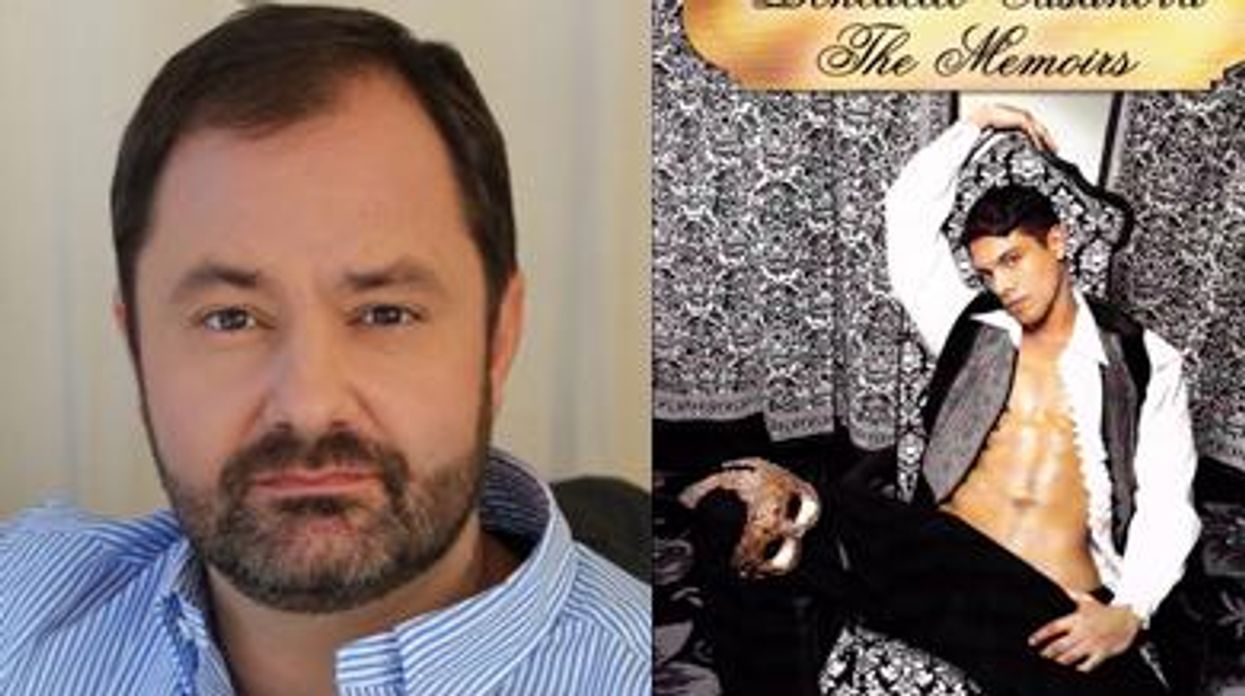

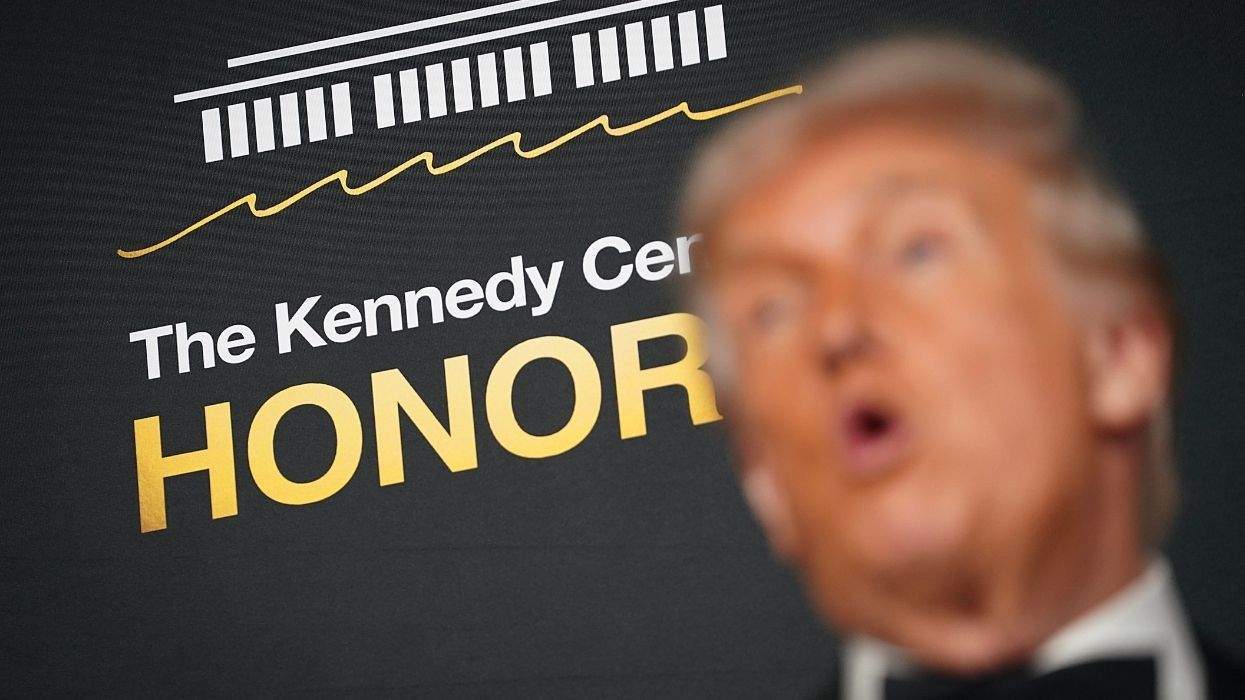
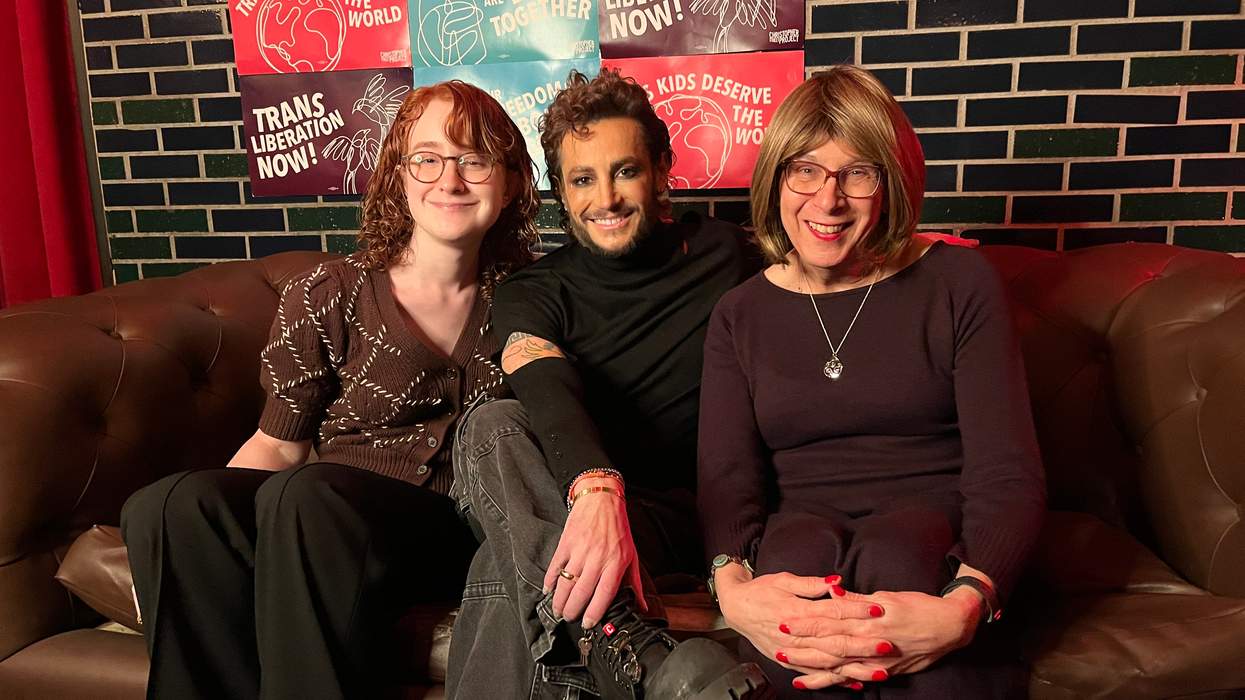


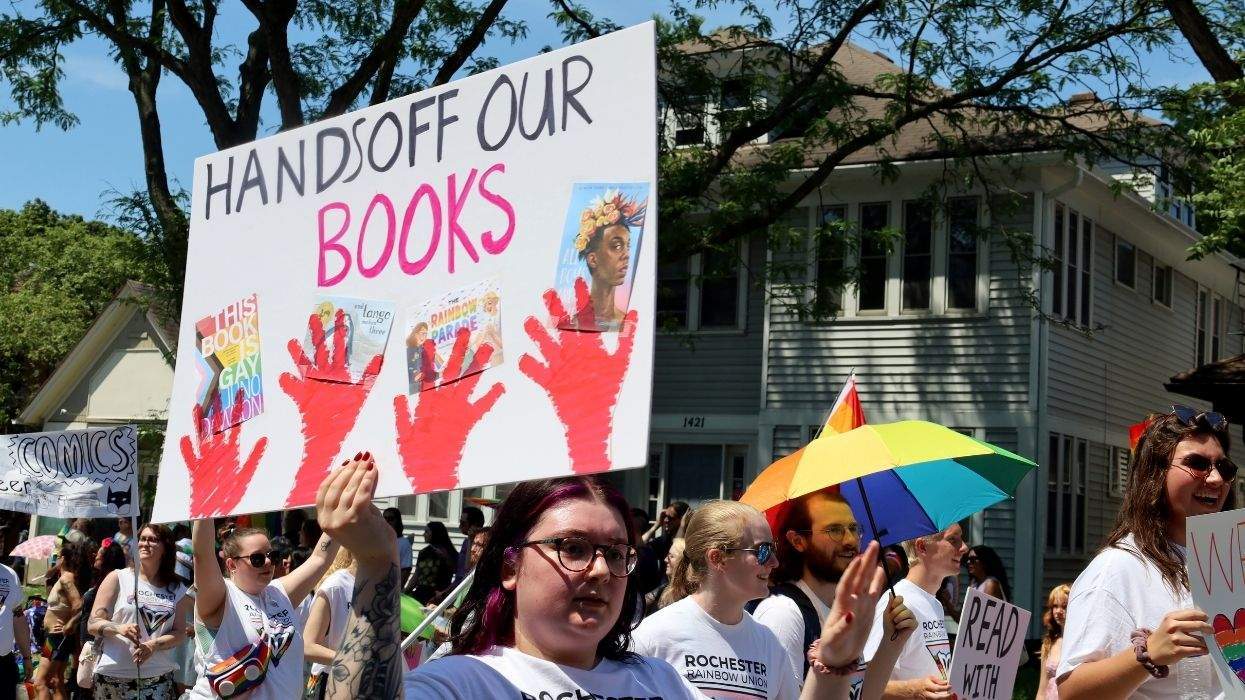



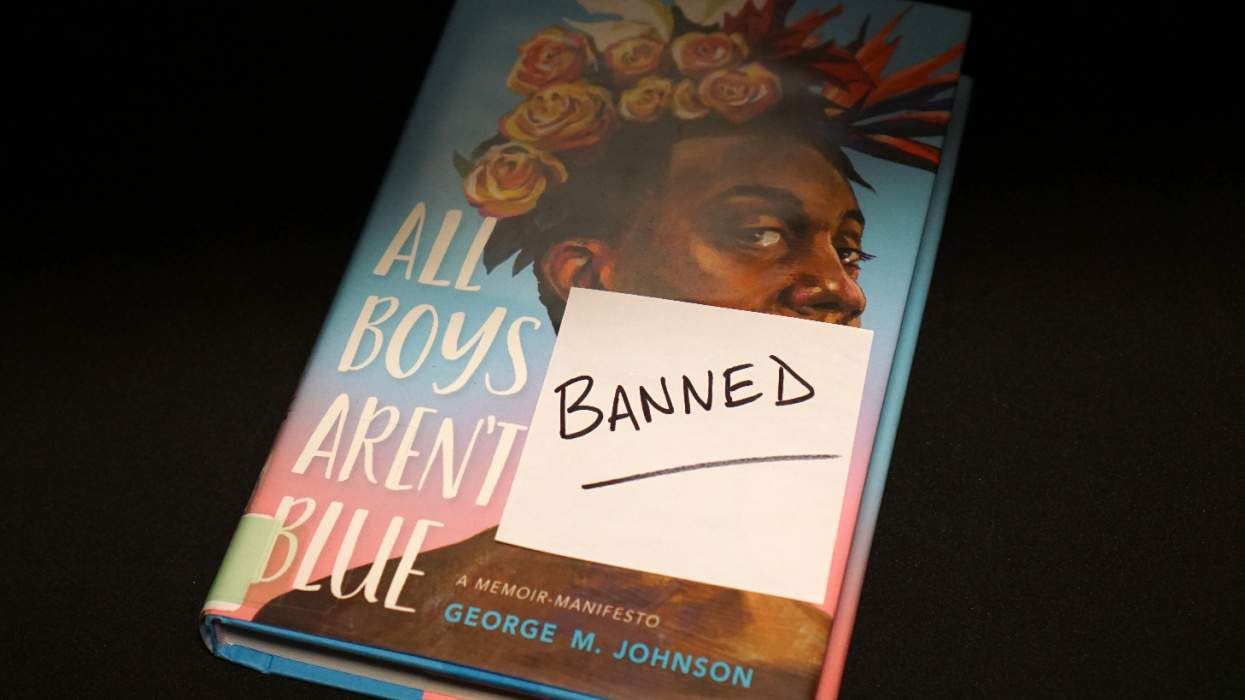





Charlie Kirk DID say stoning gay people was the 'perfect law' — and these other heinous quotes
These are some of his worst comments about LGBTQ+ people made by Charlie Kirk.